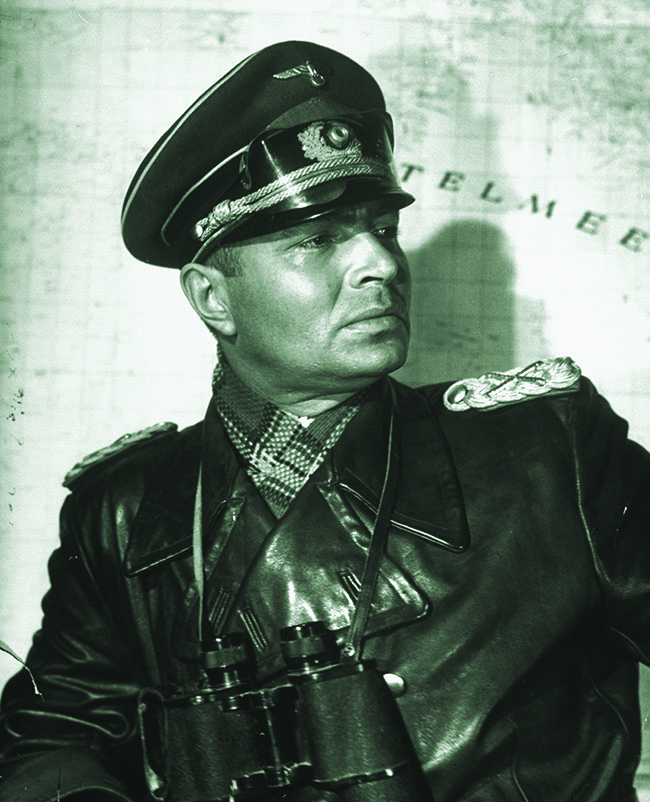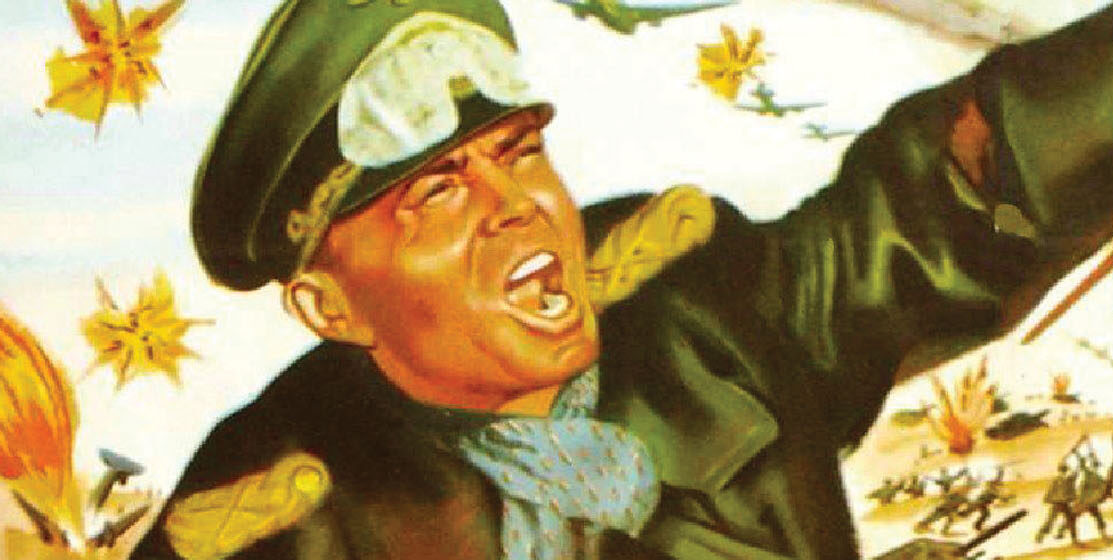
WITH THE 1949 CREATION OF NATO, it became necessary for the Western alliance to recreate a German army—one whose leadership inherently would be filled from top to bottom with World War II veterans. To avoid the political awkwardness of a large force composed at least partly of recently branded war criminals, NATO sought to forge an image of a professional and apolitical German officer corps, distinct from the Nazis’ Waffen-SS officers who received the full blame for Nazi atrocities.
Field Marshal Erwin Rommel exemplified this quintessential “good” German general: a military genius who outfought his British adversaries in North Africa, but did so with such élan that they dubbed him the “Desert Fox.” Rommel was not a member of the Nazi Party, which made it easier to disconnect him from the criminal regime he served. And because he was implicated in the failed July 1944 bomb plot to assassinate Adolf Hitler, it was likewise both possible and desirable to see him as someone who had turned against Hitler and sought to bring about his downfall.
The image of a “good” Rommel remains dominant to this day. Only in the 1970s did historians begin to question the distinction. Still, when a German television film, Rommel, premiered in 2012, portraying him as aware of Nazi atrocities and reluctant to part ways with Hitler, it came under intense criticism.
We’ll look at Rommel in the next installment of “Battle Films,” but Rommel cannot be appreciated without first understanding The Desert Fox, a 1951 biopic in which British actor James Mason portrays the German field marshal. The film is one of the major postwar foundations of the Rommel myth. Based upon a 1950 biography by Desmond Young, an admiring British brigadier, The Desert Fox purports to recreate the fruits of Young’s investigation into the circumstances of Rommel’s death. We know that Rommel somehow became linked to the plot to assassinate Hitler and that he took cyanide rather than undergo a show trial, but the details of his involvement remain unclear. Not so in The Desert Fox. The film shows Young conducting extensive research to get at what appears to be the authoritative truth, which is then dramatized in a flashback that takes up most of the film.

The story begins with Rommel’s refusal to obey Hitler’s order to hold the position to the last man at El Alamein in October–November 1942, an order Rommel attributes to the lackeys that surround Hitler rather than the dictator himself. He’s thus shown as loyal to his chief of state but unafraid to exercise his own judgment when necessary. Subsequently, Rommel is taken ill and hospitalized, where he receives a visit from Dr. Karl Strölin (Cedric Hardwicke), the lord mayor of Stuttgart. Both agree that Germany has no chance to win the war, but when Strölin suggests that Hitler abdicate in order to assure a favorable negotiated peace, Rommel bristles.
Later, Strölin visits Rommel at home, telling him outright of an extensive conspiracy to end Hitler’s rule. This time Rommel seems more receptive. In a subsequent scene with Field Marshal Gerd von Rundstedt (Leo G. Carroll), Rommel raises the conspiracy idea. Rundstedt is sympathetic but feels himself too old to take part. Rommel, however, has become sufficiently convinced of Germany’s dire predicament to feel that something must be done.
He requests a meeting with Hitler and attempts to get the dictator to see the true situation. By this time, it is mid-1944. The Western Allies have landed in Normandy and the Soviet Union is bludgeoning its way toward Germany’s eastern frontier. Hitler, however, angrily calls Rommel a defeatist and raves about miracle weapons that will speedily turn the tide. Clearly, the dictator has lost touch with reality. Afterward, intones Desmond Young as the film’s narrator (voiced by Michael Rennie), Rommel becomes “definitely committed to the plot to assassinate his Führer.”
On July 17, 1944, Rommel is seriously wounded when Allied fighter planes strafe his command car. Three days later, the bomb plot fails, and in mid-October, two SS officers arrive at Rommel’s home to accuse him of treason, offering him the choice of cyanide or a show trial and public execution. The film ends with a flashback to Rommel in North Africa, and a voiceover from Winston Churchill, saying that Rommel “deserves our respect because, although a loyal German soldier, he came to hate Hitler and all his works and took part in the conspiracy to rescue Germany by displacing the maniac and tyrant. For this, he paid the forfeit of his life.”
The moral could not be clearer. In The Desert Fox, Rommel is both apolitical and ethically courageous: an image that served the needs of the Cold War well. As we’ll see in our next installment, whether this image corresponds with reality is another matter. ✯





